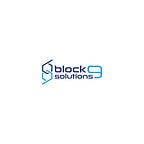How to Secure your Personal Data using blockchain?
The data kept, if breached, has the potential to destroy patients’ lives while ruining the reputation of the breached company.
The problem is finding and implementing a security system that enables doctors, patients, and properly authorized third-party organisations like insurance companies access to the data without creating openings for potential security risks.
Why are Passwords Not Enough?
Passwords are simple combinations of letters, symbols, and numbers that can be cracked by modern computers in relatively short time spans. Thanks to botnets, it is even possible to leverage millions of computers in an effort to find one password that will enable data thieves access to materials that, by both law and ethics, should never see the light of day.
Leverage Blockchain To Secure Data.
The Blockchain technology is form of open cryptography that leverages public and private keys to secure information alongside a publicly available registry that is managed in an automated and decentralized manner. Once encrypted, you need both the passcode and the private key to unlock the information making it possible for all the encrypted data to be taken and still be utterly useless to the thief.
There have been many practical applications of this technology of the last ten years, from digital currency to smart contract management. For the medical industry, it is best considered a form of security decentralized data storage that gives both medical institutions and patients the ability to access their records anywhere in a secure and equitable manner.
We can over come password limitation by leveraging a combination of specialized SSL/TLS certificates and blockchain public keys to authenticate the user before any information is transmitted. Thus, if the hacker isn’t using the right files on the right computer, it is impossible for him to get to the point where it is even possible to crack the password.
Easily Grant and Revoke Access
A challenge with securing data in traditional settings is the fact that once it is copied onto a third-party medium it is beyond the reach of any IT department. Even if the file has password protection enabled, all it takes is a cracker to break it. By making access conditional to authentication from an updated blockchain, it is possible to remotely grant and remove access to all files in a way that guarantees information security.
Blockchain Solutions makes it possible to enable and remove access to specific token-backed files, in addition to changing ownership of those files on the fly. For employers, this means it is possible to guarantee that a former staff member loses access to all data upon termination of employment without having to violate his or her privacy during the corporate separation process. All it takes is one command and all relevant material can be transferred to someone else.
Securing Personal Data
A combination of biometric security on your device, and the blockchain principles of private keys controlled solely by the user, opens up the opportunity to ditch user names and passwords forever. And with the most popular password still being 123456, that’s got to be a good thing.
As well as that, add the potential to store identity information on the blockchain where only the user owns and controls it. Blockchain has always been recognized as a great asset storage system, thanks to its zero knowledge storage, encryption, privacy, security and trust, all combined with the immutable ledger that’s decentralized.
Many companies have already enabled identity on the blockchain. However, identity alone, unconnected to the everyday services we all use, is limited.
Things get really interesting when you link identity on the blockchain with existing payment methods and services.
Privacy
Right now, we all hand over control of our personal information so promiscuously, the only real surprise is that the associated privacy problems aren’t even bigger than they are.
Blockchain offers the enticing vision of a world where you can transact without having to hand over every part of your transaction details, or remember the name of your mother’s favorite childhood pet. The blockchain’s potential for zero knowledge proofs also offers a cryptographic way to do things like prove your age without showing your age, or demonstrate your status as a good actor with a record of successful transactions — without revealing the content of those transactions.
Technology like this could well be used to acquire loans, make high-value payments — and maybe remove the need for a risk assessment on every single transaction. It could even spell the end of credit monitoring as we know it — good news, given that recent events have shown how wary we should be about security at some of those companies.
Lastly, once each of us has our information securely stored on a blockchain, we have the opportunity to choose if and when we share it — in return for actual value. This could be the beginning of a true “internet of value.”
Originally published in block9solutions.com
